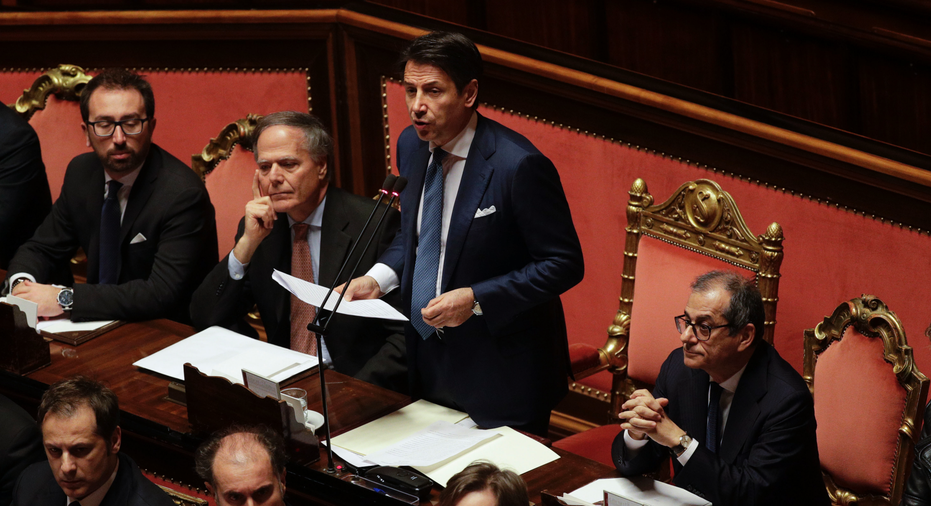Italian govt criticized for hasty moves to pass budget
A view of the Italian Senate as during the Italian Premier Giuseppe Conte address on the budget law, in Rome, Wednesday, Dec. 19, 2018. The European Commission says it has reached an agreement with Italy to avert legal action over the country's budget plans, which the EU's executive arm had warned could break euro currency rules. (AP Photo/Gregorio Borgia)
MILAN – The Italian Senate speaker delayed a vote on a new budget until the middle of the night Saturday to give lawmakers time to examine the nearly 200-page updated text they received only hours earlier.
Italy's populist government is under pressure to get the new draft approved by both houses before Dec. 31, a condition set by the EU Commission when it accepted the updated draft earlier this week. Italy's new bill reduced the nation's deficit of 2.4 percent of GDP, which the EU had deemed unacceptable, to 2.04 percent.
After the Senate, the lower chamber must also vote on the budget.
But as Senate lawmakers convened Saturday evening in Rome, opposition members complained bitterly that Italy's populist government was trying to conceal unpopular changes in the budget by not allowing lawmakers enough time to read the document before a vote.
"We are not dismayed but bewildered. You are not only amateurs, you are dangerous," Forza Italia Senator Anna Maria Bernini told the governing parties. "Enough of the tricks, the situation is ridiculous. We are looking like scoundrels in front of the country."
She accused the ruling parties of wanting to push through cuts that would harm their own constituencies, which include small business owners and artisans, and urged a delay until Sunday. Her motion was backed by other opposition parties, but they won only a 3½-hour delay.
Opposition lawmakers booed and shouted "Shame!" as Riccardo Fraccaro, the minister for parliamentary relations, moved to consider the entire budget of over 600 articles as one amendment linked to a vote of confidence.
The budget draft retains both the basic income for job seekers pledged by the ruling 5-Star Movement as well as a rollback on an unpopular pension change promised by the League, the other party in Italy's governing coalition. But the amount of money earmarked for each measure was significantly reduced in the latest draft and the launches for the moves put off until later in the year.
The budget draft also cuts so-called golden pensions of over 100,000 euros ($114,000) a year and includes a tax on digital services.
Analysts have expressed concern that the new budget delays painful measures until next year, and that the populist government has factored in for 2020 a value-added tax increase to pay for its spending.
If the budget is not approved by the end of the year, the EU Commission could trigger sanctions against Italy for its excessive deficit.
Italy's debt load is the second-highest in Europe after Greece at over 130 percent of GDP. Many economists are concerned about new financial turmoil in Europe if Italy loses control of its spending, but the Italian government insists that a sharp increase in spending is needed to jump start economic growth.





















